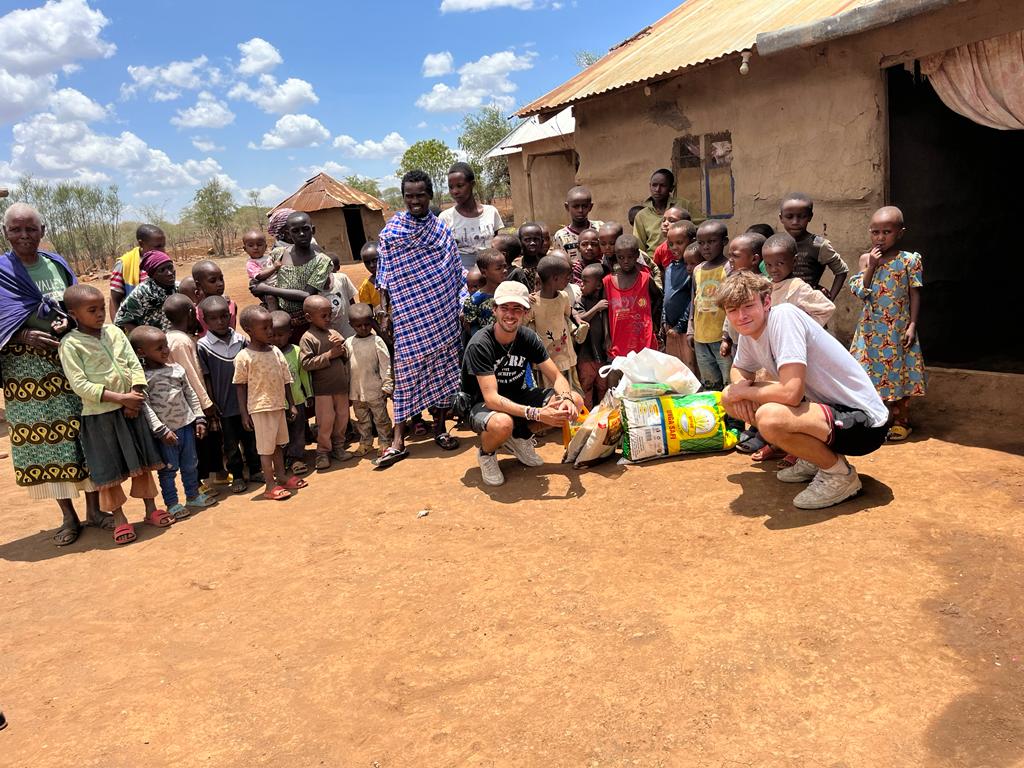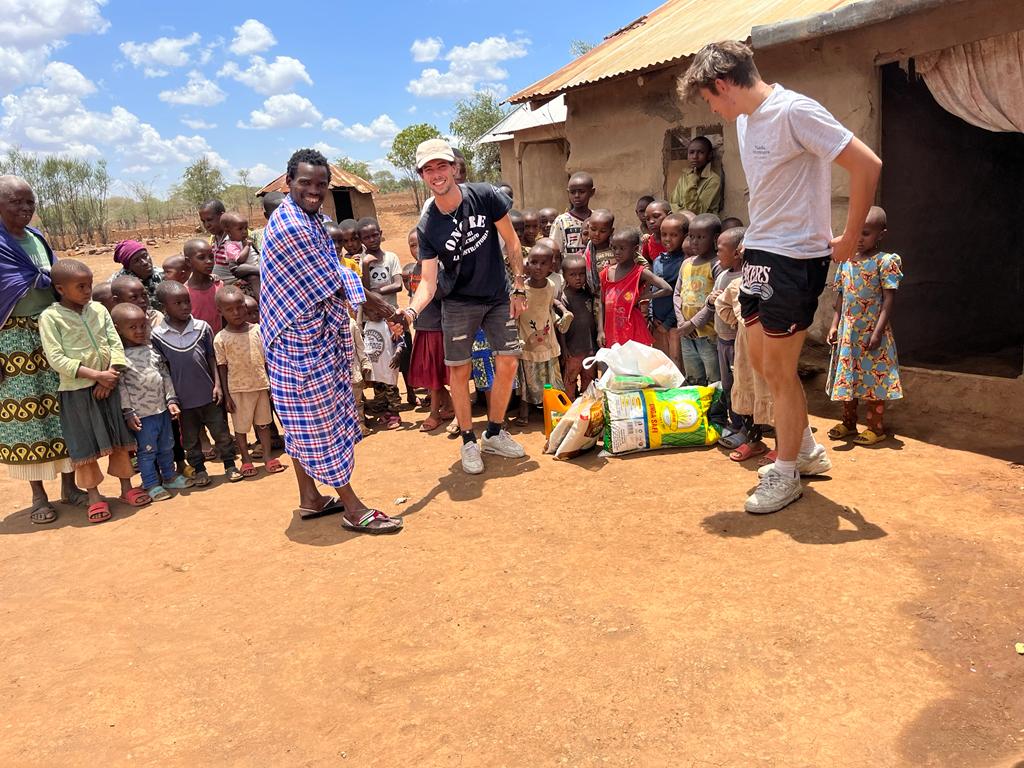
Small Groups.

Secured
Payments

Local Guides.

Easy Payments
Real Experiences
In 2002 to 2009, primary school education fees in Tanzania were dropped. The Tanzanian government’s push to get all children into school has seen unprecedented success. It is estimated that 96% of children at primary school age are enrolled in school. However, is a high level of enrolment enough? Schools have an average ratio of one teacher to 53 pupils, which is much worse in rural areas, and international aid is faltering since the global recession. The quality of education in Tanzania is a growing cause for concern.
Over a third of people in Tanzania live below the national poverty line. Education is one of the essential skills for children to develop and is their doorway to a bright future. Tourism is big business in Tanzania, and so the ability to speak English dramatically increases the opportunities for young people to gain meaningful employment. To make matters worse, teaching methods in Tanzania are largely based on learning through repetition and aimed at passing exams. This has led to a situation where, though the children can reel off information, they have very little understanding of what they are saying, particularly in relation to learning English. As most secondary school classes are taught in English, this causes problems later in the education system. Improving the methodologies of learning at this level can lay the foundation for increased learning potential in later life and thus improve the employability of Tanzanian students.
The Maasai Land Explorer English Teaching programme in Tanzania aims to provide local schools and orphanages with support in a variety of ways, helping to teach children English, Math and other subjects, at the same time transferring skills and sharing cultural perspectives. No previous teaching experience is required. All you need is to be creative and proactive and we will help you settle into a role that will be beneficial to the children you work with, while gaining valuable skills yourself.
Volunteers work as assistants to the local teachers, although there maybe times you need to lead your own lessons due to staff shortages. All lessons are taught in English apart from Swahili language lessons. The schools have a basic curriculum, which is followed; however volunteers have the freedom to introduce new ideas/topics. It is important that volunteers spend an hour or two each day preparing for the following days lessons. We support primary and secondary schools. Furthermore, many of the orphanages we support have nursery schools for children of pre-school age – The Maasai Land Explorer volunteers also assist at these projects. Nurseries and primary schools are suitable for volunteers with no teaching experience. If you have teaching experience or a TEFL qualification, then it is recommended that you teach at a secondary school where the children are aged from 12 to 16 years of age.
The schools in Arusha shut during the months of April, August and December. During this period we run sports camps for orphaned and vulnerable children. This is a free programme where kids can come and play in a supervised environment. Volunteers will have the opportunity to take classes in football, dance, fitness, swimming (depending on the time of the year), martial arts and yoga. We try and take this opportunity to integrate some Basic English teaching into the sessions as well as teaching the kids about health, hygiene and important life skills. In addition, we also run English tuition classes at the Volunteer House for disadvantaged children in the local community. Volunteers work with smaller groups offering more personal English training to the children. Lastly, a number of schools in the area have different timetables to the main schools that we support. Some schools will be open during this period so there will still be some classroom based teaching work available for you. Overall, there are teaching opportunities throughout the year!
On-arrival into Tanzania you will need to obtain a Tourist Visa. This costs $50 ($100 for US Citizens). You do not need to worry about this in advance as you can purchase the visa at the airport on-arrival.
Tanzanian law stipulates that all volunteers must have a work permit. If you’re joining The Olokii volunteer project’s in Tanzania for less than 90 days then you will need a CTA Work Permit. This costs $230 (£160). Our local team will process this on your behalf when you arrive in Arusha. Please make sure you have $230 in cash. Our local team will process this for you within the first couple of days of your arrival and return your passport to you with the work permit stamp inside it. Therefore, you do not need to obtain this work permit prior to arriving in Tanzania. If you are volunteering for more than 90 days then the work permit fee is $550 (around £345)
The total visa and work permit fee for the trip is $250 (approximately £160), or $300 for US citizens. You should bring this amount with you to Tanzania in cash (US dollars). The cost would be $600 for volunteers joining us in Tanzania for more than 90 days.
It is also mandatory to have the Yellow Fever Vaccination to enter Tanzania. Therefore, you must ensure you allow yourself plenty of time to arrange this immunization before you go, as you will need to show your Yellow Fever Vaccination record to the immigration officials at the airport. There has been a lot of debate on this issue, as some health officials say it is not necessary to have the Yellow Fever Vaccination. However, from the personal experience of the The Olokii volunteer project’s team we have always been asked to show proof of our Yellow Fever Vaccination on entry into Tanzania and so strongly advise all our volunteers to do so as well to avoid any complications on-arrival.
Start With us?
Arusha city
The town of Arusha, also known as A-town or Arachuga, is set amongst a backdrop of the impressive Mt Meru and vast lush countryside. It’s a really beautiful setting. It’s a vibrant town with a good nightlife and a friendly atmosphere.
Arusha is also the gateway to Tanzania’s top safaris and the amazing Mount Kilimanjaro. You can easily go on a number of incredible safaris from Arusha, climb mountains and even visit traditional Maasai communities. There are plenty of bars and restaurants in town where you can hang out in the evenings.
You will find all the amenities you could need in Arusha including banks, supermarkets and international standard hospitals. It is a safe and welcoming area and really is the perfect setting for a volunteer programme.
Weather
The climate of Tanzania is best described as tropical although this varies from region to region. Along the coast the weather is quite humid whereas further inland it is notably cooler, especially during the evenings in the mountainous areas. The warmest time of the year to visit Tanzania is December through March with the cooler months being June through October.
Tanzania has two rainy seasons. The lighter short rains (Mvuli) fall during November and December and occasionally into January and the heavier long rains (Masika) have their downpour March to May. The shorter rains generally occur at night and during the earlier hours of the morning and are followed by lovely long afternoons of sunshine. The longer rains occur at more frequent intervals, are heavier and last longer. Arusha and its surrounding villages get quite muddy during the rainy season (and can be very dusty in the hotter months) so be sure to pack some sturdy walking shoes and avoid white clothing.
Despite its proximity to the equator, Arusha enjoys a cool and dry climate, due to its high elevation from sea level. The average temperature is 25ºC all year, although it does get quite cold at night so please pack some warmer clothes. Furthermore, it can get quite cold in the months of June and July, so please pack accordingly.
Local transport
Dalla dalla (minibuses) are the most common form of transport for local people. They are an inexpensive and convenient form of transport. Dalla dallas are private vehicles that operate informal routes around the local area. They’re usually a tight squeeze as the drivers pile in the customers to maximize their takings. Fees are fixed but it is important to know the true cost of the journey in advance in case the conductor (drivers assistant) attempts to overcharge you!
A Private Hire vehicle can be anything from a regular taxi to an off-road truck. The private hires do not have meters. As a result, you will have to negotiate hard on the price and as to whether the driver can pick up other passengers or not. Always ensure you agree on the fee before you set off. These options are the safest method of transport. Although quite expensive, this cost can be offset if travelling in a group.
Our local team will guide you through the local transport methods during your in-country orientation, and you can always ask them if you are unsure of how much you should be paying for a journey.
Transport around Tanzania
Precision Air and Fast Jet are the main domestic flight companies whose routes operate out of all major hubs – Dar es Salaam, Kilimanjaro and Zanzibar. Air travel is a convenient but expensive form of travel.
Bus travel is the cheapest and most common form of travel around Tanzania. There is a daily bus service from Arusha to Dar es Salaam, which costs around £15 per person and takes approximately 9 hours, should you wish to travel to the capital. There is also a regular service to Moshi, which takes around 1.5 hours.
About our Volunteering Programs
 Like many African countries, Tanzania faces an acute shortage of health care workers. Low pay, poor working conditions and limited training programmes contribute to the problem, whilst the rising burden of HIV/AIDS treatment greatly amplifies the situation. Unfortunately, health standards in Tanzania have declined so much that it trails most other developing nations.
Like many African countries, Tanzania faces an acute shortage of health care workers. Low pay, poor working conditions and limited training programmes contribute to the problem, whilst the rising burden of HIV/AIDS treatment greatly amplifies the situation. Unfortunately, health standards in Tanzania have declined so much that it trails most other developing nations.
We collaborate with the following healthcare facilities in and around Arusha. You can select which facility you wish to be placed within by outlining this preference in the ‘special requirements’ section of the online application form. Please note you can only be placed at one medical facility during your time with us, it is not possible to combine medical facilities during your time with us.
Government Hospital – We place volunteers at a government hospital located in the town of Tengeru, a neighboring town of Arusha. Started originally as a women’s health centre, it currently caters to all kinds of general health matters.
All applicants who wish to be placed at the government hospital must have completed at least two years of a medical or nursing degree.
We can place participants at the following departments:
Dental, Diabetes Clinic, General Medical Consultation, Laboratory, HIV Awareness and Testing, Midwifery & Labour Ward, Newborn Care and Immunizations, Obstetrics and Gynecology, Optical, Pediatrics, Pharmacy, Physiotherapy (part-time), Prenatal Care & Antenatal Care, Radiology Surgery (Minor and Major) & Tuberculosis Wing.
It is a 24/7 facilities and treats around 50 to 80 patients each day. The hospital has a strong maternity ward and around 500 newborns are delivered each month – so this is a very good placement for midwifery students. Some of the main cases treated at the hospital are malaria, phenomena and TB.
Volunteers work from 08:00 to 14:00 at the hospital from Monday to Friday. You will be working alongside qualified local staff from the specific departments. On your first day at the government hospital you will receive a full introduction from the matron, who will discuss with you what departments you’re interested in and devise a work schedule for you. You can choose to spend your time within a number of different departments or focus on one or two. Whilst you will be assigned a specific member of staff to mentor you, it is important to understand that the staffs are extremely busy. Therefore, you should be proactive, ask questions and be assertive in requesting additional guidance should you require it.
Working in a government hospital will come with its own set of challenges. You should be prepared to experience some strong emotions with the standards of the facilities and limited equipment available. Things tend to be a lot more laid-back in Tanzania and this lack of urgency can be frustrating as well as the impersonal way Tanzanian medical staff treat patients. Please be prepared for some eye-opening experiences, which may be difficult to cope with at times but ultimately highly rewarding. Throw yourself into the experience and challenge yourself to learn.
Community Clinic – Our second medical placement is a community clinic that offers affordable healthcare to some of the poorest people in Arusha and surrounding areas. It is the first full-service charity clinic in Arusha. The clinic sees up to 3,000 patients per month, although it is relatively small in size. The patients are able to see a doctor, have blood work done, and most of the time receive prescription treatments for a very nominal fee.
The clinic has the following departments:
General Medical Consultation, Minor Surgeries (largely fractures), Laboratory, Pharmacy, X-ray, Ultrasound
Participants will have the chance to work in each department. The head doctor and his team will mentor you throughout your time at the clinic. They will go out of their way to get you involved in every aspect of the work they do at the clinic. In the small surgery room, you will be involved in carrying out procedures such as circumcision, abscess/cyst/growth removal and drainage and stitching. Within the pharmacy you will learn about the different medication prescribed, mainly antibiotics, anti-worm, or ant malarial.
This placement is open to people of all medical backgrounds, including school leavers and 1st & 2nd year university students. You will get to witness a range of cases, largely malaria and typhoid. There are also quite a few obstetrics cases (some are aftermaths of illegal abortions), basic dentistry (consultation and removal only) and urinary infections.
Private Maternity Clinic – The Maasai Land Exploreralso collaborates with a private maternity clinic that offers Obstetrics and Gynecology services as well as sub-speciality areas. As a private paid clinic, it has very good facilities and is of a similar standard to western clinics. The clinic sees around 15 to 20 clients each day – a variety of local and ex-pats, therefore many of the consultations are undertaken in English. The following facilities are available at the private clinic:
Anti-Natal Clinic, General Medical Consultation, Laboratory, Labour and Delivery Ward, Newborn Care and Immunizations, Obstetrics and Gynecology, Pharmacy & Laboratory.
Your role is largely observational and centred on assisting the head doctor in the consultation room. You will be able to receive training in using an ultrasound machine and interpreting the results. Typical working hours are 09:00 to 18:00 from Monday to Friday. The private clinic is open to people of all backgrounds. The majority of cases had seen minor illnesses such as diarrhea and malaria. However, there is a large volume of cases to see the Gynecologist. There are also around 30 deliveries at the clinic each week and on-average around 100 patients are seen per week.
If you’re looking to gain experience that will help further your medical career but also explore one of the most amazing countries in the world, then PMGY’s Tanzania Medical Programme is definitely the placement for you! All volunteers must be patient, flexible and motivated to ensure they make the most of their time at the placement.
Your level of hands-on involvement is dependent on your experience, duration of programme and willingness to get involved. The doctors will assess your capabilities and assign responsibilities accordingly. Those with little or no medical experience will assume a largely observational role. If you are studying medically related degree, then you should have more opportunity to undertake some more basic hands-on involvement. However, please note we can never guarantee hands-on experience, as the decision ultimately lies with the medical staff.
Skills Required
School leavers and 1st & 2nd year university students can only be placed at the community clinic or private maternity clinic. In order to be placed at the government hospital you needed to have completed two years of a medical or nursing university degree, as well as having a patient and proactive mindset. The government hospital is not an appropriate setting for people with limited medical experience, as it does not offer the structure and mentoring that the majority of our volunteers require. From our experience, participants with little or no medical experience would find going straight into the government hospital too overwhelming.
You will need to have a good level of English (although English does not have to be your first language. You should also be physically fit and over the age of 18.
If you wish to be placed in a specific facility and/or department/s then you should outline this requirement in the ‘special requirements’ section of the online application form. If you do not choose a preference then you will be assigned to the facility we see as most appropriate for you. Please note you can only be assigned to one facility during your time with PMGY in Tanzania.
Working
Hours
You will attend your placement from Monday to Friday. Weekends are free to travel. The working hours are as follows:
Government Hospital – 08:00 to 14:00
Community Clinic – 09:00 to 14:30
Private Maternity Clinic – 09:00 to 18:00
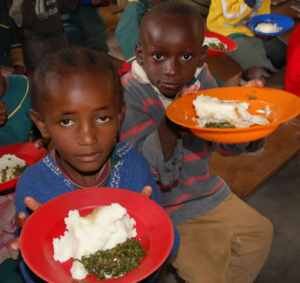 It is estimated that around 1.4 million Tanzanians are infected with HIV. Furthermore, for every 1,000 births almost 6 women die in childbirth. These factors along with general widespread poverty and minimal state welfare have resulted in an alarmingly high level of orphans and street children in Tanzania. The Maasai Land Explorer works with a number of centres in Arusha that strive to address this issue.
It is estimated that around 1.4 million Tanzanians are infected with HIV. Furthermore, for every 1,000 births almost 6 women die in childbirth. These factors along with general widespread poverty and minimal state welfare have resulted in an alarmingly high level of orphans and street children in Tanzania. The Maasai Land Explorer works with a number of centres in Arusha that strive to address this issue.
There are two main types of orphanages in Tanzania – board orphanages and day orphanages. The word orphanage in Tanzania does not necessarily mean that the children have lost both parents. In fact the majority may have only lost one parent and the single parent cannot afford to raise the child.
Boarding orphanages are traditional orphanages where the children permanently reside at the centre. These orphanages are typically understaffed and highly overcrowded. At the boarding orphanages, volunteers get involved in the various aspects of caring for the children. From feeding and helping to prepare meals, to organizing games and sporting activities, or simply spending time with the children. Volunteering at the board orphanages is a highly challenging but extremely rewarding experience. Volunteers must be proactive and energetic as it can get a little chaotic at times with so many children and not enough staff. However, putting a smile on a child’s face and giving them the one-on-one attention they so desperately crave makes all the hard work worthwhile. The children at the board orphanages range from babies to 18 year olds
The day orphanages are essentially run as day-care centres. The children attend the centre during the day and then return to stay with family, friends or relatives in the afternoon. The children are sent to the day orphanages before they reach school age (from the age of 6 onwards), as their guardians are unable to look after them during the day. The day orphanages are generally quite structured. Volunteers play an active role in the general care of the children but the primary focus is English teaching.
The Maasai Land Explorer support four main orphanages during the school term-time, three board orphanages and a day orphanage. Most volunteers go to the board orphanages, working with the very young children in a care giving role. The teaching sessions at the orphanage are more relaxed and informal. Lessons are centered around games and activities to keep the children engaged.
Volunteers do not need to have any specific experience to join this programme, although childcare experience is useful. You will need to have a good level of English (although English does not have to be your first language. You should also be physically fit, over the age of 17 and looking to make a difference.
It’s a challenging project both emotionally and physically so you will need to have a positive attitude and heaps of energy. However, giving your time to help these wonderful children contributes towards giving them the opportunities to be successful when they grow up and experience the happiness that all children deserve. This project will also have a lasting impression on you.
Working Hours
In general, you will volunteer for around for around 4 to 5 hours per day, Monday to Friday – weekends are free.
This is possibly the best of all The Maasai Land Explorer Real Experiences! We designed the The Real Tanzania Experience to give you the chance to see all of the highlights that Tanzania has to offer within a structured and social environment whilst also integrating yourself in the community by taking part in meaningful volunteer work. The Maasai Land Explorer Real Tanzania Experience will be running on the following dates:
Sunday 10th July to Sunday 7th August
Sundy 14th August to 11th September
You will see and experience so much over the 4 weeks. You will be travelling with a group of 10+ like-minded travelers for the duration, so you’re guaranteed to make friends to share the memories with. This is a brief summary of what you could be getting up to:
Week 1 & 2 – The first two weeks are spent volunteering at one of the orphanage or teaching programmes that we support. Your first weekend will be spent exploring the town of Arusha, checking out hot springs and waterfalls, and even learning about the Maasai tribe.
We have an option to climb Kilimanjaro on the second week of the trip. This costs an additional £650 and will replace your second week at the volunteer projects. More information is outlined below.
Week 3 – On your third week you will have your very own Lion King experience as you embark on a 6-day/5-night safari. You will have the chance to spot the big-5 as you pass through the Serengeti. The main event of the safari has to be Ngorongoro Crater, often referred to as the Eighth Wonder of the World! Expect to see breath-taking scenery straight out of the National Geographic and the Discovery Channel.
Week 4 – The final week of the trip is spent on the enchanting island of Zanzibar, to experience a completely different side of Tanzania.
The trip starts in Arusha and ends in Zanzibar. You should book your flight into Tanzania to arrive into Kilimanjaro International Airport (airport code JRO). Further information on the options for flying home are outlined in the Volunteer Handbook you receive once you have signed up for the trip. Please note that the cost of flying to Zanzibar from Kilimanjaro is not included in the Programme Fee.
Volunteering
The group will spend two weeks volunteering at one of the education or orphanage placements that we support in Arusha. You will volunteer for around 4 hours each day. Your role will range from childcare and English teaching, to organizing games and activities for the children. If you don’t have any teaching experience then there is no need to worry. You’ll be working alongside other members of your group, and our local team will assist you with planning activities and lessons so you have a clear idea of what to do at the project. We expect every volunteer to spend an hour or two each evening preparing activities and lessons for the following day.
If you have a preference of project, please outline this in the ‘special requirements’ section of the online application form. You do not need to enter a preference at this stage and can decide nearer the time. If you do not enter a preference then we will assign you to a project that needs support at the time. We will always place members of the group together, so you will never be volunteering alone.
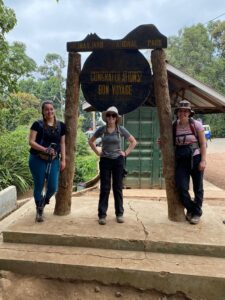 Always wanted to climb Kilimanjaro? Here’s your chance! We have the option of a 6-day Mt Kilimanjaro climb during the second week of the trip (instead of spending a second week at the volunteer projects).
Always wanted to climb Kilimanjaro? Here’s your chance! We have the option of a 6-day Mt Kilimanjaro climb during the second week of the trip (instead of spending a second week at the volunteer projects).
The trek will follow the popular Marangu route. This option requires a minimum of 5 participants, so we cannot guarantee the trek will go ahead until the participant requirements have been met.
We will confirm closer to the trip start date whether or not the Kilimanjaro option will be available. Full instructions on what to pack/expect from the trek is outlined in the Volunteer Handbook you receive once you’re signed up to the trip.
The cost of the Mt Kilimanjaro trek option is an additional £650. This cost does not include tips for the guides, porters and cooks. While The Maasai Land Explorer ensures all staff are paid fair and reasonable wages, tips are relied upon by the staff as a supplement to their wages, so your consideration and appreciation of their hard work is appreciated. We feel a tip of around $100 US dollars (approximately £60) is appropriate. If the Kilimanjaro trip does not run then we will refund you the additional £650 in full.
Zanzibar
The final week of the trip is spent in Zanzibar. You are responsible for covering the costs of your return flight from Kilimanjaro to Zanzibar. There are a number of low-cost airlines in Tanzania that offer return flights for around £100. The Maasai Land Explorer will announce the details of what flight to book and how to book, so the group can travel together. This announcement will be made a few months before the programme start date because the airlines only release their flight schedules a few months in advance.
To join the The Maasai Land Explorer Real Tanzania Experience you must be at least 17 years of age. The recommended upper age limit is 30. We recommend that you budget around £500 spending money for your time on the Real Tanzania Experience.
Ø Village Healthcare Experience – Arusha
Our Village Experience is a unique opportunity – truly not to be missed if you are going to be joining us on an elective placement in our Arusha region. It places you right in the heart of a semi-nomadic Maasai tribal community in Tanzania – living with a family, working in a small healthcare dispensary, and learning all about the traditions of the Maasai people from your very own local guide. It all makes for an unforgettable week, as you are actively integrated into community life, by both your role as a healthcare practitioner and the warm hospitality of the people. African cultural experiences do not come any more authentic than this!
What will I be doing?
Your week begins on Sunday morning, with your guide meeting you at our house in Arusha and taking you by dala-dala to the Oldenderiti village – the village where you will be living. This trip should take around 1hours in total, although the stunning scenery that you pass through should make this fly past! Once you have reached the village, you will be introduced to the family who are to be your hosts for the week, as well as some members of the wider community.
Your guide on the Maasai experience will either be a member of the actual community in which you are staying, or from the surrounding region – and therefore an expert in the customs and traditions of the Maasai people. Their role is to help you to learn about and experience as much of their lifestyle as it is possible to fit into your week! As well as organizing activities for you to do, they are also there to answer any questions that you might have, so you should feel free to quiz them about any aspect of the Maasai culture that particularly interests you.
The activities that you will take part in will vary depending on the exact enkang you are staying within, and the time of year. However apart from learning about cultural forms of dress and customs such as the ear-stretching practices, your activities are likely to have quite a healthcare-related focus – helping you to understand about some of the principles which guide the traditional medicine which is a big part of Maasai life. For example, you will probably get to visit sacred sites which are used as health retreats.
At the end of the week (and if you are feeling up to it!) you will have the opportunity to watch a traditional goat or sheep sacrifice, and join in with the roasting of the meat, which is usually followed by tsoto – traditional Maasai singing and dancing. Then, when you have reached the end of your week the following Saturday, your guide will accompany you back to the Work the World house.
Each Village Experience in Arusha is limited to a maximum of 4 students at any one time, in order to ensure that you get the opportunity to get as involved as possible in Maasai community life. We usually time the trip to coincide with the last week of your placement; however the logistics involved may mean that this is not always possible.
The clinic
You will be spending three mornings working in a small Maasai healthcare dispensary. No matter whether you are training in nursing, medicine, dentistry, physical therapy or midwifery, this is a chance to really broaden your Tanzanian elective experience, by learning about primary healthcare delivery in a setting where resources are severely limited. Obviously we cannot guarantee that the cases that come into the dispensary will always be entirely relevant to your particular area of study, but they will certainly be interesting, with issues concerning Maasai people varying from childhood vaccinations and malaria through to HIV/AIDS and female initiation.
Accommodation and food
For the duration of your village experience you will be joining a Maasai family group. For many students this is the highlight of the trip, as you are able to see exactly how the local people live, day-to-day. It also gives you a chance to learn about the generosity with which the Maasai people treat their guests, and the interest they have in you and your life back home. You will be given a hut which you are likely to be sharing with other students. The facilities will certainly be more basic than you will be used to back at the Arusha house – there will be no running water for starters, as it is all drawn from a central well, and the toilet will be the traditional “long-drop” variety. However, you will have your own bed to lie down on at the end of each busy day and the place will be tidy and safe. All your meals are provided by your Maasai hosts who will prepare delicious traditional meals for you all to enjoy. Purified drinking water will also be provided.
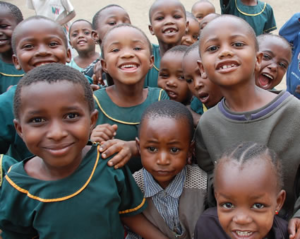 Recent years, more and more schools are looking to do volunteer work on their overseas expeditions. Volunteer trips are an excellent way to make a positive impact, visit exciting destinations, and for students to immerse themselves in diverse cultures and increase their global awareness.
Recent years, more and more schools are looking to do volunteer work on their overseas expeditions. Volunteer trips are an excellent way to make a positive impact, visit exciting destinations, and for students to immerse themselves in diverse cultures and increase their global awareness.
However, organizing such a trip involves A LOT of preparation. The Maasai Land Explorer had the expertise, experience and networks to make such an expedition accessible, safe and stress-free. Furthermore, as a social initiative we are able to guarantee affordable prices without sacrificing the quality of our programmes.
We can tailor a trip around your requirements. Whether you wish to solely focus on volunteering, or would like to incorporate volunteering into a wider trip – we can work together to create the perfect itinerary for you.
Below are just some of the services we can offer:
– Flights & insurance
– Customized programme lengths and start dates
– The Maasai Land Explorer led trips headed by one of our experienced UK based team leaders
– Sightseeing, adventure and educational activities during your leisure time
– Pre-departure briefings
If you’d like to speak to us about the idea of organizing your schools trip with The Maasai Land Explorer then please give us a call on +255767 707 352 or drop us an email on info@maasailandexplorer.com or maasailandexplorer@gmail.com
Please note we can organize trips of all sizes and requirements i.e. corporate, sports clubs and universities.
Why us
Volunteers to. In each destination, we have teams of expertly trained local professionals who are highly experienced in hosting international volunteers.
Support – Having an experienced team on-call 24/7and working hard to ensure you are fully prepared from day one makes the journey a whole lot smoother. Our volunteers regularly comment on the high quality support we provide them before, during and after their volunteer programme.
Worthwhile Projects – Volunteering with The Maasai Land Explorer gives you the confidence that you will be working on meaningful and sustainable projects. We carefully research, visit and collaborate with each project we send volunteers to.
Financial Protection – The Maasai Land Explorer is a full member of the TTA and an ATOL license holder so you can rest assured your funds are financially secure throughout the duration of your trip.
Self & Skill Development – Volunteer group trips can be a great way for participants to develop new skills, learn about the world and even improve their career prospects. Our programmes are specially designed to challenge individuals and offer them a unique experiential learning experience that will undoubtedly develop them both on an intellectual and personal level.
Unique Opportunities – Through our networks around the world, we can organize volunteer expeditions in areas that most people could hardly identify let alone access. Whether you wish to assist a rural community, government hospital or specialist NGO, we have the infrastructure to help you reach out.
Travel Opportunities – Alongside the volunteering placements we organize, The Maasai Land Explorer can put together itineraries that incorporate a diverse range of adventure and cultural travel excursions. Whether you want to trek Kilimanjaro, visit the breathtaking Taj Mahal or ride camels in the Sahara Desert – The Maasai Land Explorer can arrange this for you.
Volunteer Application process
It is important that you check the age, education and language requirements for the programme before applying. The minimum age for the majority of our programmes is 18; however we do have a number of options for volunteers aged 17.
When to apply? – You should apply as soon as you are 100% sure that you wish to join us. It is never too early to sign up. However, we ask that all applicants apply at least 4 weeks before they intend to join us. If you plan to sign up within 4 weeks of your programme start date, please give us a call or email to confirm there are places available.
Once you have decided which programme you wish to apply for then you should read all the programme information and the
It is important that you check the age, education and language requirements for the programme before applying. The minimum age for the majority of our programmes is 18; however we do have a number of options for volunteers aged 17.
When to apply? – You should apply as soon as you are 100% sure that you wish to join us. It is never too early to sign up. However, we ask that all applicants apply at least 4 weeks before they intend to join us. If you plan to sign up within 4 weeks of your programme start date, please give us a call or email to confirm there are places available.
Once you have decided which programme you wish to apply for then you should read all the programme information.
You will need to apply for the programme via our website. If you click on the ‘Tell me more’ button next to the programme you are interested in then this will take you to the programme overview page. On the right hand-side of the screen you will see an ‘Apply Now’ button. This takes you through to the online application form.
The online application form itself is pretty self-explanatory. You’ll need to pick the dates you wish to go and enter some information about yourself and your expectations.
We will ask you three more detailed questions in the online application. They are:
– What are your expectations for the programme?
– What relevant skills/experience do you have?
– What are your motivations for joining the programme?
Please be as detailed as possible with these questions. The more we know about you and your expectations the better. This is particularly true for volunteers who are using the programme as part of a degree elective scheme and so need to meet certain criteria whilst on the programme.
Flight Quote – The Maasai Land Explorer are able to source competitively priced flights for our volunteers. We’ll ask you whether you want a flight quote during the online application form. If you would like us to send you a flight quote then please let us know which airport you would like to fly from, and the dates you would like to fly out and return home.
Insurance – You will have the option to add The Maasai Land Explorer insurance policy to your programme during the online application form. One week is considered as 7 days, so when working out which duration of cover to purchase, you will need to count the days you will be away including the day you fly out and the day you return home. In most cases you will actually be away for a day or two more than your programme duration.
You can add The Maasai Land Explorer travel insurance onto your booking at any stage. Therefore, if you did not add the insurance option to your programme during the online application form then don’t worry. Just drop us an email and we can add it onto your application up to one day before you start your programme.
Once you have submitted your application you will receive an automated email from us in 20 minutes saying we have received your application (please check your junk-mail as it may have accidentally been placed there). If you haven’t received an email from us within 20 minutes then assume your application has not got through and resubmit your online application
If you’d like to join us in multiple locations then you have two options. You can apply for each programme separately. Or you can apply for the programme which you plan to join us in first, and then in the ‘special requirements’ section of the online application form enter the name of the other programme/s you wish to join (the start date and the duration of programme). We will then manually add the additional programme/s to your application and confirm it via email. Please note that the Registration Fee applies to each destination you join us in.
Application Submitted
Once you have completed your application we will send you an Application Received email to let you know we have successfully received it. We will be in contact within three working days to confirm the outcome of your application. After we have confirmed your place on the volunteer programme we will send you an Application Successful email.
In order to confirm your place you are required to pay a down deposit payment of $250usd which is part of your program placement and your required to make this transfer payment within five working days of receiving your Application Successful email.
Payment is made via bank to bank wire transfer payment and once you’re done with it then please send us your bank payment slip to confirm it.
On receipt of your program deposit payment fees payment we will send you a welcome to The Maasai Land Explorer email. Within this email we will confirm your programme details and outline how to make payment of the Programme Fee. This email will also include a link where you can download the Volunteer Handbook. This is a downloadable PDF file; we will also send a hardcopy of the Volunteer Handbook.
The Volunteer Handbook contains everything you need to know to prepare for your trip. Please read this carefully and if you are unsure about anything just get in touch with us.
It’s time to get planning!
The remaining Programme Fee is due 60 days prior to your programme commencement date. You should refer to the Welcome to The Maasai Land Explorer email you received when you paid your deposit for the link to make payment of your Programme Fee. If you are unable to find the email then don’t worry. Just give us a call or an email and we can re-send you the link.
If you have booked within 60 days of the programme start date you are required to pay both the Registration and Programme Fee in full within 48 hours of receiving your Application Successful email.
Ready
Review your Volunteer Handbook to ensure you are fully prepared for your trip. We will be in touch before your leave to check you have everything you need.
If required, we can assist you with flights and travel insurance. Remember, we’re always available to answer any questions you may have.
Our Happy Clients!
Our Tanzania trip was fabulous. Spotting the Tree-climbing lions and Black Rhino was unforgettable. Thanks for fulfilling our dreams. We’ll be back soon!
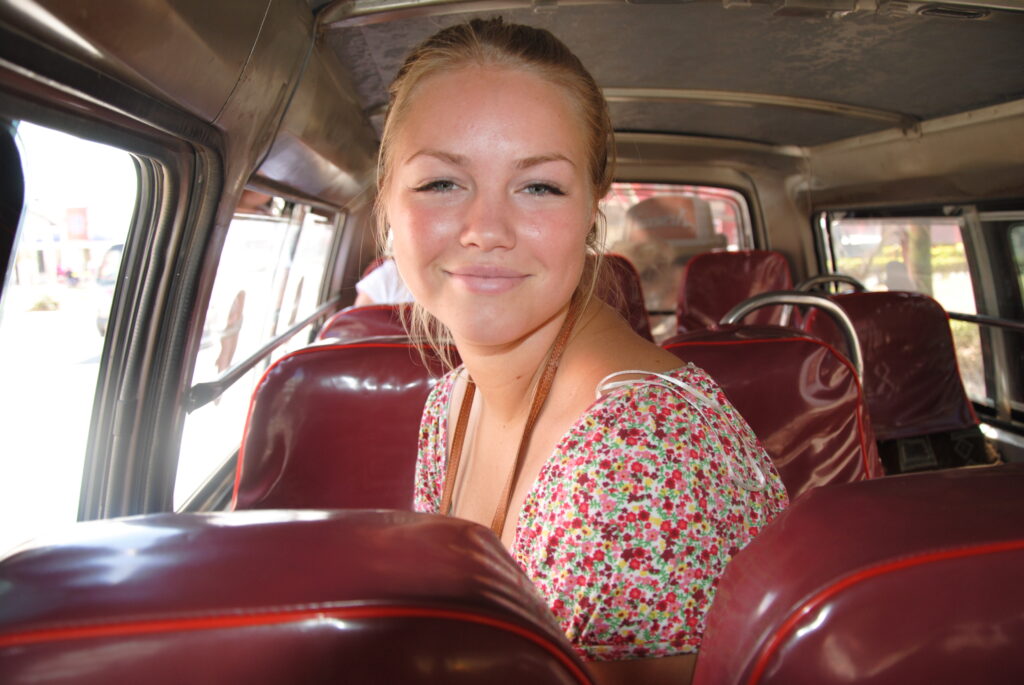
Clara Smith
Thank you, Maasai Land Wonders Team, for your exceptional care during my 3 Months Volunteering program. A thousand thanks for an unforgettable experience.
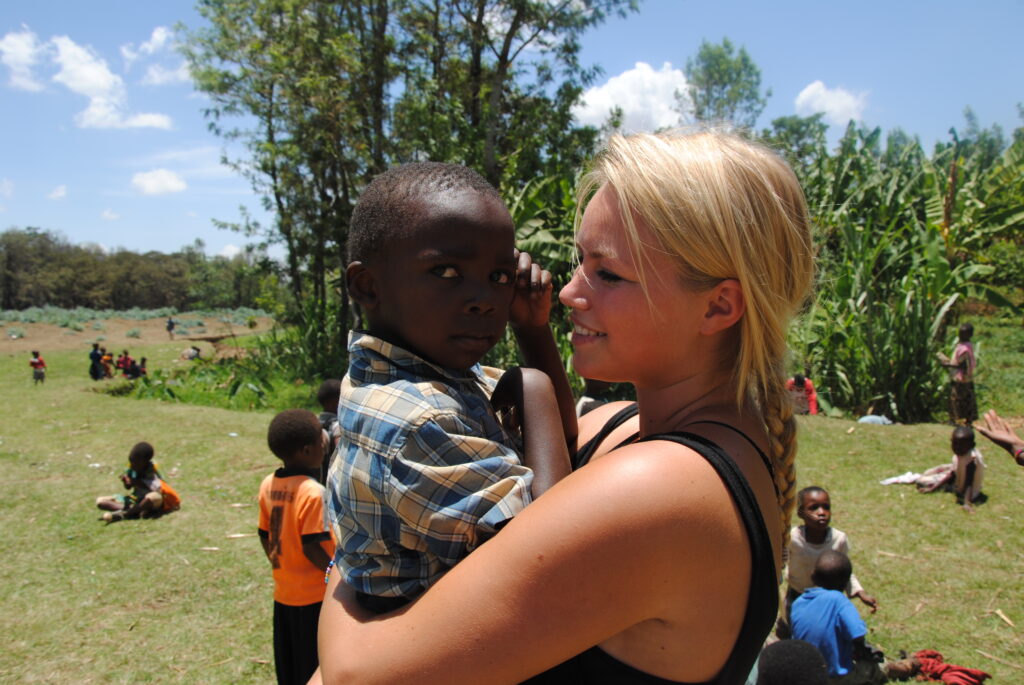
Shelly Barns
Thank you, Edwin and your team, for an amazing 7-day trip. Your personal care and dedication made it unforgettable. 1000 thanks!
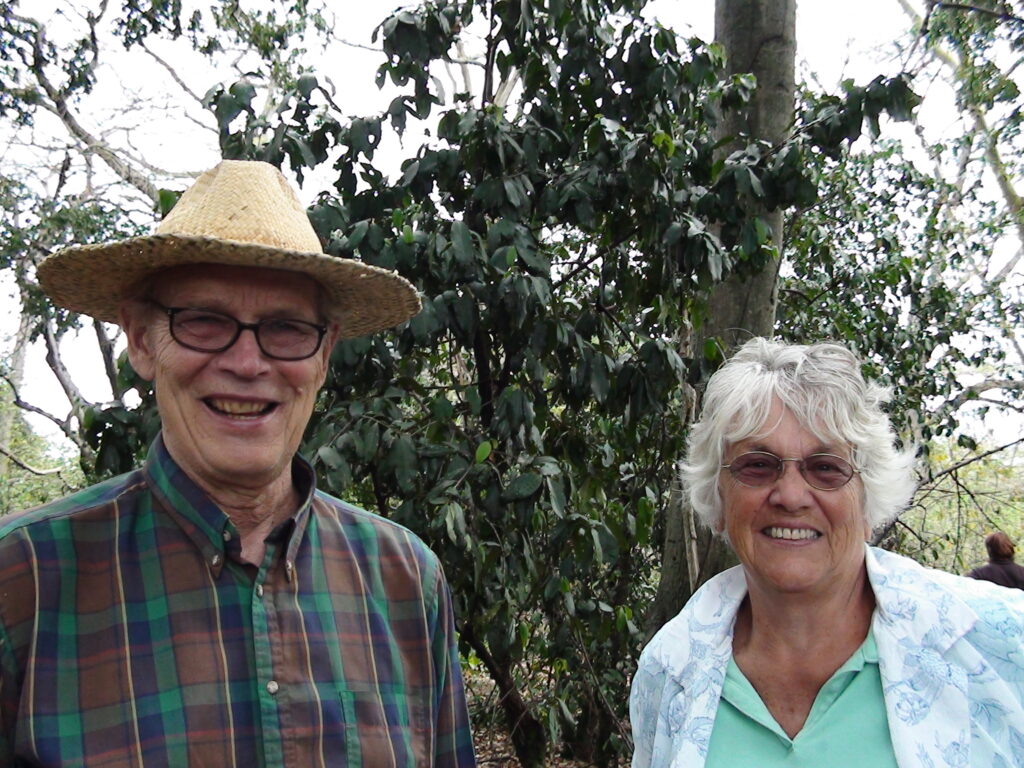
Jacob Luke
Contact us, We're at your Service.
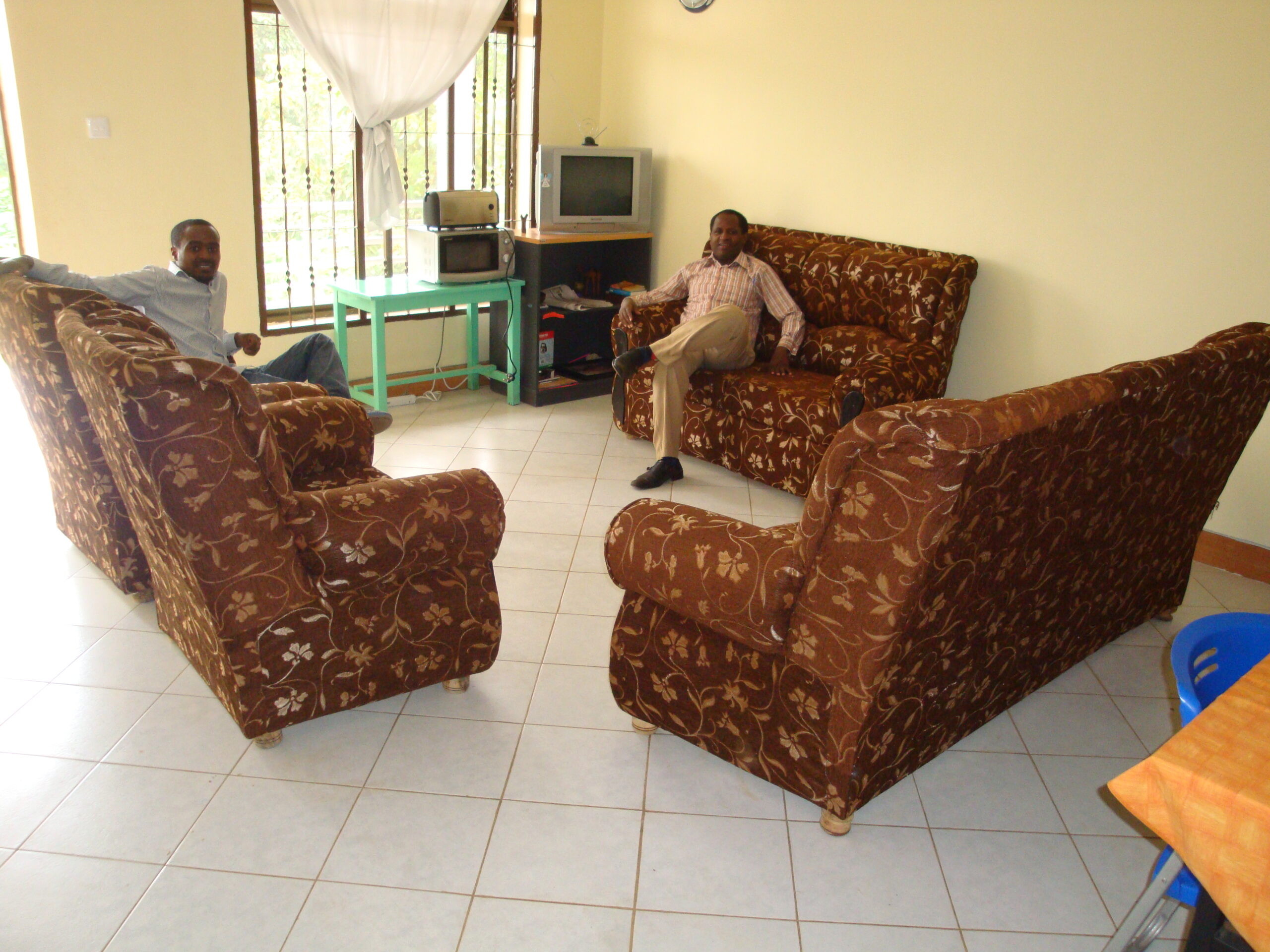
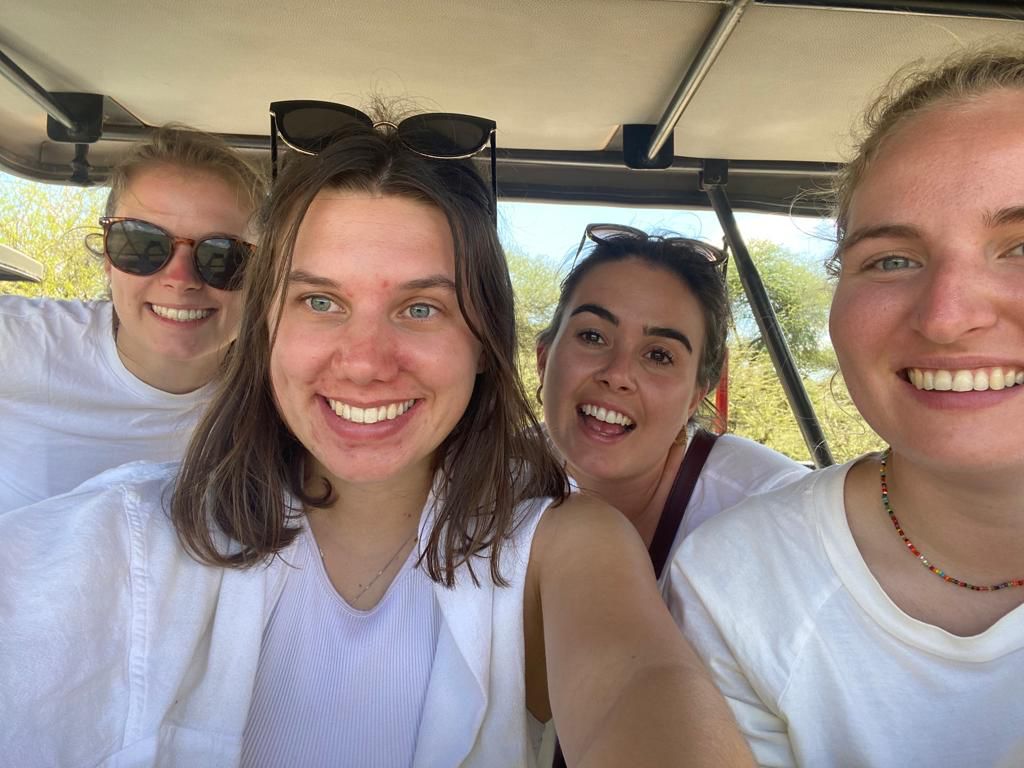
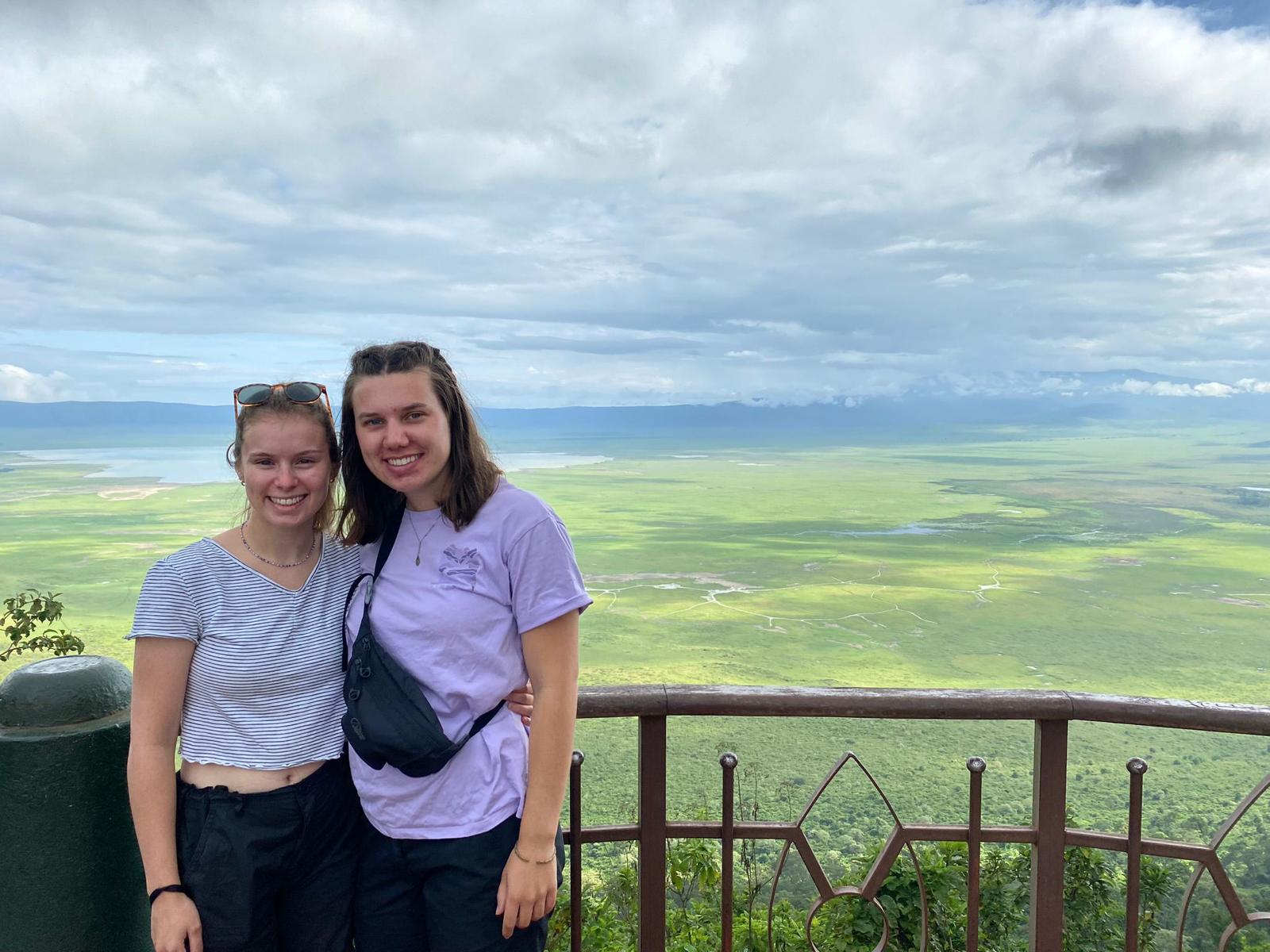
Trusted by:


